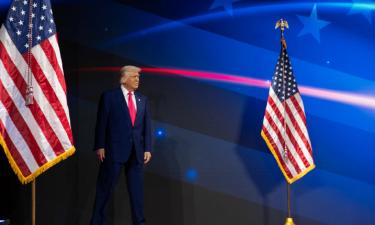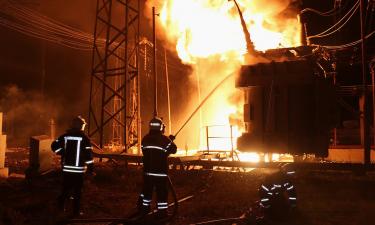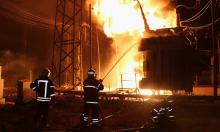United Russia: Nine years later
December 1 of 2001 marked the day of birth of the Russian political party "Unity and Fatherland - United Russia." On the one hand, it is not an anniversary. On the other hand, the party has been around for a long time, taking the leading position in the Russian political system throughout the period of its existence.
United Russia was the result of a merger of three socio-political groups - Unity, Fatherland and All Russia. The last two were headed by Yuri Luzhkov and Mintimer Shaimiev, respectively, and in 1999 participated in the Duma elections as a single block. Unity, however, won.
Incidentally, considering the lifetime of the party, the United Russia is second only to the KPRF, LDPR and Yabloko. But over the last decade, all three parties were giving up their positions, while United Russia, on the contrary, was getting stronger.
Yet, if we start listing all the "sins" United Russia is accused of by its opponents, it will take hours. Nevertheless, the results of the elections are the main indicator of the popularity of any political party and clearly show that the leadership of United Russia is not an accident.
This, however, is the main problem of the party. The lack of real competition almost always leads to a certain complacency and arrogance. United Russia is no exception.
Yet, as of today this party is the undisputed leader. And there are no objective reasons for it to be replaced by the Communists, the Liberal Democrats or Revolutionaries, not to mention such parties as Pravoye Delo, Yabloko, and Patriots of Russia.
According to the head of the National Strategy Institute Mikhail Remizov, originally United Russia had several tasks to fulfill. "One of them is obvious - the consolidation of parliamentary support for the government in the parliament. The party coped with this task well, the analyst shared with Pravda.ru.
"Another issue is the issue of consolidation of the political class. In addition to the political vertical, which includes governors, ministers and other officials, there must be a horizontal line of power, so to speak. This is a defined network of political relations between the representatives of the elite. And this trusted network of political ties is provided by the party as well. This task of the political class suggests the existence of a certain common value system and ideological framework for the elite. It implies an educational process and management training. This task was partially fulfilled by the party and there is still a great deal of work to be done," said Mikhail Remizov. In his opinion, this is one of the most urgent tasks for the party in terms of its development.
However United Russia has an even more ambitious task. According to Mikhail Remizov, only the current President started calling United Russia a ruling party. "Yet, I think that this title was given as an advance," said the analyst. According to him, United Russia supports the executive branch, but it does not always fully forms and determines its course, at least at the federal level.
"However, at the regional level the model of the party government is being formed and developed, the party becomes increasingly more responsible and gets more authority in the formation of the executive branch. Yet, again, it does not always happen in reality, because often the balance of forces and interests between the party and the governor's power center is strongly shifted toward the governor," said Remizov. In his opinion, this task remains a future goal of United Russia.
"The fact that United Russia dominates the political arena is a problem for its competitors who cannot challenge United Russia," said Director General of National Energy Security Fund Konstantin Simonov. "United Russia is accused of monopoly, but you are welcome to put an end to this monopoly," the political analyst said, referring to the opposition parties.
He said that the party faces two major tasks. First task is to become a full-fledged personnel reserve for the government. Second task is to not be afraid to offer bright ideas of the development of the state and have an intellectual program. "United Russia, of course, has the program, but it should not be afraid to be dominant not only in terms of participation in the government, in the Parliament, but also in intellectual areas. To do this, it should offer more vivid and meaningful intellectual products," said Konstantin Simonov to Pravda.ru.
However, the second task has much to do with the monopoly situation Konstantin Simonov mentioned earlier. That is, the party does not have much external incentive to create "vivid intellectual products" in the absence of worthy opponents. This is certainly a problem for United Russia. Yet, this issue is not unique to United Russia. However, it is hardly likely that United Russia will include the task of growing its own opposition in its program.
Oleg Artyukov
Pravda.Ru
Subscribe to Pravda.Ru Telegram channel, Facebook, RSS!





